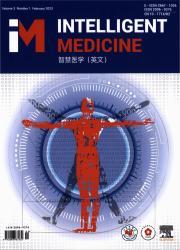Artificial intelligence in the care of patients with rectal cancer undergoing neoadjuvant chemoradiation and intentional watchful waiting: a literature review
IF 6.9
Q1 COMPUTER SCIENCE, INTERDISCIPLINARY APPLICATIONS
引用次数: 0
Abstract
Rectal cancer remains a major global health challenge, prompting ongoing efforts to optimize treatment strategies. In recent years, organ-preserving approaches—particularly the “watch-and-wait” strategy—have gained growing interest. Concurrently, the advent of artificial intelligence (AI) has opened new avenues in personalized oncology. This review explored the emerging role of AI in the individualized management of rectal cancer, with a focus on its potential to improve treatment outcomes and patient prognosis. Herein, we provide a comprehensive synthesis of recent studies investigating AI applications in predicting pathological complete response, metastasis, and disease-free survival following neoadjuvant therapy. These studies employ diverse data modalities, including radiomics (magnetic resonance imaging (MRI), computerized tomography (CT), and endoscopy), clinical parameters, and other omics-based features. The study evaluated the predictive models developed using machine learning and deep learning algorithms, discussing their performance metrics, strengths, and limitations. Despite the ongoing challenges—such as limited data availability, lack of model interpretability, and suboptimal predictive accuracy—AI has demonstrated potential to outperform conventional assessment methods in select areas. These findings may highlight the growing significance of AI in supporting personalized, evidence-based decision-making in rectal cancer care.
人工智能在直肠癌新辅助放化疗患者护理和有意观察等待中的应用:文献综述
直肠癌仍然是一个主要的全球健康挑战,促使人们不断努力优化治疗策略。近年来,器官保存方法——尤其是“观察和等待”策略——获得了越来越多的兴趣。同时,人工智能(AI)的出现为个性化肿瘤学开辟了新的途径。本综述探讨了人工智能在直肠癌个体化治疗中的新作用,重点关注其改善治疗结果和患者预后的潜力。在此,我们综合了最近的研究,研究了人工智能在预测新辅助治疗后的病理完全缓解、转移和无病生存方面的应用。这些研究采用不同的数据模式,包括放射组学(磁共振成像(MRI)、计算机断层扫描(CT)和内窥镜检查)、临床参数和其他基于组学的特征。该研究评估了使用机器学习和深度学习算法开发的预测模型,讨论了它们的性能指标、优势和局限性。尽管存在持续的挑战,例如有限的数据可用性,缺乏模型可解释性,以及次优的预测准确性,但人工智能已经证明了在某些领域优于传统评估方法的潜力。这些发现可能突出了人工智能在支持直肠癌治疗中个性化、循证决策方面日益重要的意义。
本文章由计算机程序翻译,如有差异,请以英文原文为准。
求助全文
约1分钟内获得全文
求助全文
来源期刊

Intelligent medicine
Surgery, Radiology and Imaging, Artificial Intelligence, Biomedical Engineering
CiteScore
5.20
自引率
0.00%
发文量
19
 求助内容:
求助内容: 应助结果提醒方式:
应助结果提醒方式:


